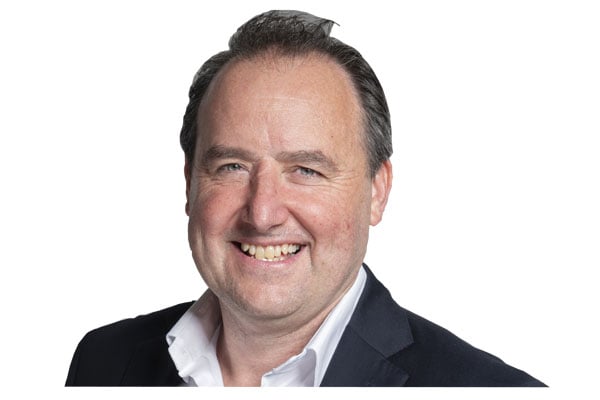Uganda’s investment in sanitation sets the pace for Africa

Dominic O’Neill
What you need to know:
- “...We are working with country partners to create a sanitation economy that generates jobs...
Early November, I was at the AfricaSan conference in Namibia when I, and my other
co-attendees, heard a sobering truth: progress on sanitation and achieving the Sustainable Development Goals (SDG) is regressing. Even today, halfway through the timeline the world set for itself to achieve the SDGs, almost half of the world’s population lacks access to safe and sustainable sanitation. In Uganda, one out of three people is estimated to have access to improved facilities and poor sanitation practices cost the Ugandan economy $177 million annually, contributing also to a disease burden that is both preventable and tragic.
The situation is dire, but it doesn't need to be. At the same conference, it was my privilege to co-host a high-level session with the Ugandan government that outlined how a pathway for change is within our grasp. A new paradigm, one that builds robust sanitation economies, attracts new investments, and draws private sector partners to provide essential services. And Uganda is leading the way.
Uganda presents a unique opportunity—a chance to make significant early progress due to its robust political commitment and conducive environment for investment. Municipalities and authorities like the Kampala Capital City Authority are already exploring sustainable methods to reach their populations. However, the journey is long, and the need for a market-driven approach is urgent.
As the UN’s only entity solely focused on catalysing financing for market-based approaches to sanitation, hygiene and menstrual health, the Sanitation and Hygiene Fund (SHF) is proud to work with Uganda as it tackles these challenges head-on. As we work to catalyse financing into sanitation economies and increase investment in sustainable solutions, we firmly believe Uganda is leading the way.
Together, our approach is not just about constructing facilities; it’s about fostering a sustainable ecosystem. We are working with country partners to create a sanitation economy that generates jobs, businesses, and opportunities for circular sanitation and biogas production. This is not a mere aspiration. In other sectors like agriculture, the establishment of factories and wholesale points has significantly enhanced economic value. The same can be achieved in the sanitation sector.
We are also addressing the challenges of menstrual health and hygiene (MHH), which disproportionately affect women and girls. Inadequate facilities and stigma around menstruation are barriers to education and participation in public life. By improving access to affordable menstrual products of quality, we are not just improving sanitation; we are contributing to gender equality, and the empowerment of women and girls as well as financial and economic well-being of families, communities and nations.
Building a thriving national sanitation economy is not just about improving health outcomes; it’s about ensuring dignity, safety, and a better quality of life. It’s about building a model that is financially sustainable and can be replicated across Africa.
To potential investors and partners, we say: join us. The time to act is now. The sanitation economy is ripe for investment, and the returns are not just financial—they are measured in lives saved, diseases prevented, and communities transformed. We have a critical window in the next decade to effectively and efficiently deploy resources and to establish sustainable financing models for non-sewered sanitation solutions set to maximise and enhance private financing in the sector.
The sanitation economy is an opportunity for climate-resilient and gender-focused investments.
Dominic O’Neill is the executive director of the Sanitation and Hygiene Fund.




